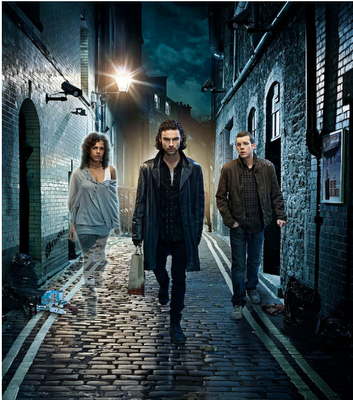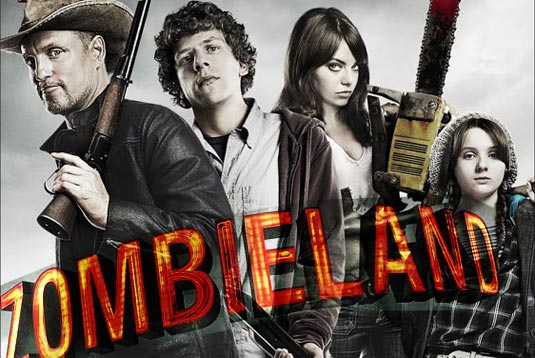 |
| Urban Fantasy is here to stay |
Urban Fantasy -- the bringing of the fantastic (vampires, werewolves, magic, fae and so much more) to a modern, real world setting -- has become ever more popular as a mainstream genre. From Twilight to True Blood to The Vampire Diaries, it is now firmly entrenched on our televisions. The books regularly reach the best seller lists - this isn’t a fringe genre. It’s here, it’s huge and it’s here to stay.
This means the portrayals represented matter. Any popular media has the power to shape culture and society; any stories that are consumed by a large number of people are going to draw upon our societal prejudices and, in turn, feed and encourage those prejudices and portrayals.
Urban Fantasy is a genre that seldom gets critical examination. At first blush, the opposite would appear to be true when one considers the social conversation around Twilight or True Blood, but these are only two examples within an extremely large genre. It is interesting to note that much of Urban Fantasy contains female protagonists and is largely produced and consumed by women. Considering the ongoing gender divide, it is hardly surprising that this immensely popular genre is being ignored by critics.
Just because Urban Fantasy is largely produced by women and consumed by women does not mean that it is free of sexism and misogyny. When it comes to motherhood, a role that most women will one day assume, it is hardly surprising that within the genre most examples are highly problematic -- when they appear at all.
The lack of representation of motherhood is so extreme that the viewer is forced to ask is, “where are the mothers?”. It seems like such an odd question, because you’d expect most characters, like most people, to have a mother lurking around somewhere; especially since most of the heroines in these stories are young women or even teenagers. Search as we might, the mothers are conspicuous by their absence.
The most common cause of the missing mother seems to be death -- indeed, it is almost mandatory for an Urban Fantasy heroine to have a tragically dead mother. In
The Vampire Diaries Elena’s mother is dead.
True Blood has the orphaned Sookie;
Charmed killed the sisters’ mother off before the series even started; Cassie, Diana, Melissa, Jake and Adam all have dead mothers in
The Secret Circle. Buffy’s mother died part way through the series. In
The Dresden Files, Harry’s mother died before the series began. In
Grimm, Nick is yet another protagonist with a dead mother. The whole beginning motivation of
Supernatural revolves around their dead mother.
In Blood and Chocolate, both mother and father are brutally murdered. In
The Craft Sarah Bailey's mother is dead. In
Underworld, Selene’s mother is murdered by Viktor.
This list is extremely -- even excessively -- long but it’s shocking that we looked through all the shows and movies that we’ve watched and actually found it hard to find a series where the mother was alive and present.
Even in stories where the mother is lucky enough to have dodged the bullet and is actually alive, she is still often absent. In Stephenie Meyer’s Twilight, Renee, Bella’s mother, is absent, living in a completely different state. In The Vampire Diaries, Bonnie’s mother, Abby, is absent through much of her childhood and, when they are finally reunited, Abby not only presents Bonnie with a child that she raised as a replacement, but quickly disappears after becoming a vampire. Abby is well aware of the pain that her absence has caused Bonnie and yet she steadfastly finds a reason not to engage with her daughter. Once Upon a Time sets records for absent mothers -- Augustus never had one, Snow White and Ruby’s mothers are dead, and Emma grew up in the foster system without her mother.
I suppose we should be grateful these mothers ducked the Urban Fantasy plague that has put so many parents in their graves, but they still have little to no actual influence and presence in their children’s -- the protagonists' -- lives.
With such a massive pattern, we have to ask why. Why is it almost a requirement in Urban Fantasy for the young, female protagonist to be lacking a mother (and often a father too for that matter)?
One reason seems to be to make the characters sad, relatable and, frankly, angst ridden. It’s quick, cheap and easy characterisation to establish a sad, tortured or otherwise issue-laden character with “depth” to kill off a parent and have them be sad about it. These dead mothers are sacrificed for quick and easy back story for the protagonist. Take a heroine, load her up with a shiny ability, a bit of snark, a love interest -- now kill her mother so she has “depth.” The back story is established: we have a “3-dimensional character” who has suffered (which seems to be shorthand for an established character in far too much fiction).

















